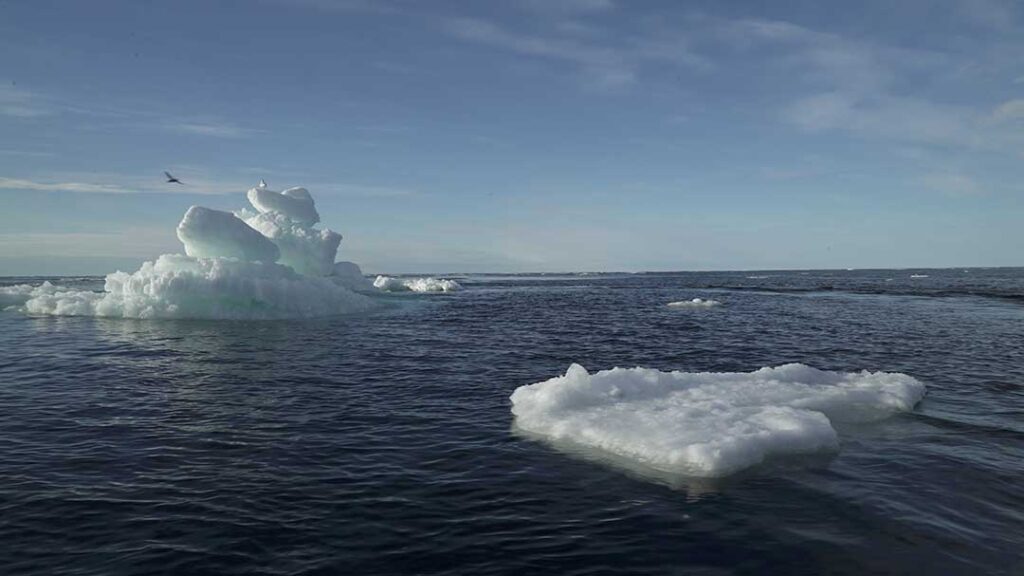Countries of the Arctic Council declared March 4, 2022, they would boycott future talks in Russia over its Ukraine invasion, throwing international cooperation in the region into upheaval at a time when climate change is opening it up to resource exploitation.
The Arctic Council brings together countries with Arctic territories to collaborate on matters that affect the region’s residents. It does not deal with security issues.
Russia, which holds the council’s rotating chairmanship, has posed “grave impediments to international cooperation, including in the Arctic,” the council’s other seven member countries said in a statement.
The countries — Canada, Denmark, Finland, Iceland, Norway, Sweden and the United States — said they were suspending their work indefinitely and would skip planned talks in May 2022 in the northern Russian city of Arkhangelsk due to Moscow’s “flagrant violation” of Ukraine’s sovereignty and territorial integrity.
The boycott raises uncertainty over development plans in the Arctic, which is warming three times as fast as the rest of the world.
As sea ice vanishes, polar waters are opening to shipping and other industries eager to exploit the region’s natural resources, including oil, gas, and metals such as gold, iron and rare-earth elements used in everything from military equipment to renewable energy. (Pictured: Floating ice is photographed by the crew of the Greenpeace ship Arctic Sunrise during a September 2020 expedition.)
“Russia’s standing everywhere, including the Arctic, a region with strong rules and principles based on international law, is diminished by its further invasion of Ukraine,” the U.S. State Department said on Twitter.
It is unclear whether the United States and other council members see Russia as part of the group’s work going forward. Russia accounts for 50% of Arctic landmass. Unless challenged, Russia would hold the Arctic Council chairmanship until 2023.
“The Arctic is facing its biggest crisis in 35 years,” said Klaus Dodds, a geopolitician at Britain’s Royal Holloway University who studies Arctic relations. Established in 1996, the Arctic Council has been nominated several times for a Nobel Peace Prize — most recently in February 2022.
“The Arctic has been a relatively peaceful region, and many of us who work there brag about this, (including) working with the Russian Federation” in the past, said Michael Sfraga, founding director of the Wilson Center’s Polar Institute and chair of the U.S. Arctic Research Commission.
“For the last 25 years, Arctic leadership has been able to navigate the winds of change,” he said, including Russia’s 2014 annexation of Crimea from Ukraine. “There’s been a bubble around the Arctic, keeping other tensions out.”
That bubble burst in February when Russian troops invaded Ukraine.
“The spirit of Arctic exceptionalism and cooperation is in jeopardy,” said Pavel Devyatkin, a Moscow-based researcher at the Arctic Institute think tank.
IMAGE CREDIT: REUTERS

